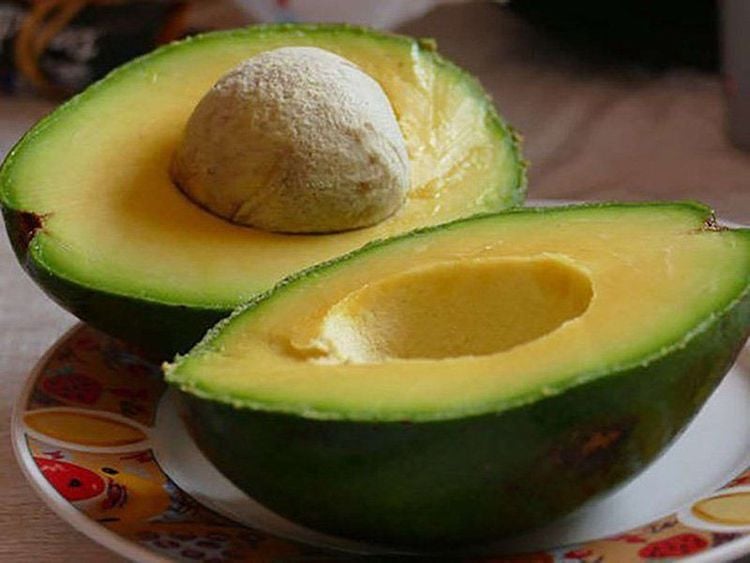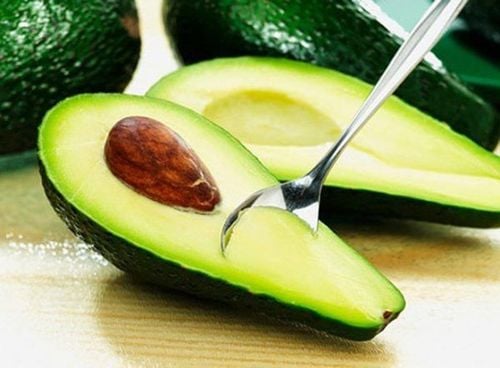Avocados contain nearly 20 vitamins and minerals such as potassium, lutein, and folate per serving. They are low in sugar and high in fiber. Here are the health benefits of avocados that are backed by scientific research.
1. Avocado is very nutritious
Avocado is a highly nutritious, delicious and abundant fruit. Today, avocado has become an extremely popular food among the health conscious. It is often referred to as a superfood, which is not surprising given its health properties.
There are many different types of avocados available today, varying in shape and color. They also weigh from 220 grams to 3-1.4 kg per fruit. 100 grams of avocado contains nutrients such as:
- Vitamin K: 26% Daily Value (DV)
- Folate: 20% of DV
- Vitamin C: 17% of DV
- Potassium: 14% of DV
- Vitamin B5: 14% of DV
- Vitamin B6: 13% of DV
- Vitamin E: 10% of DV
2. Avocados contain more potassium than bananas
Potassium is an essential nutrient for the body and most of us are often deficient in potassium. This nutrient helps maintain electrical impulses in the body’s cells and serves various important functions. Avocados are rich in potassium. A 100g serving provides 14% of the body’s potassium. Compared to bananas which only provide 10% potassium, this is a typical high potassium food. Some studies have shown that potassium is associated with lower blood pressure.

Avocado contains a large amount of potassium.
3. Avocados Are Loaded With Heart-Healthy Monounsaturated Fatty Acids
Avocados are a high-fat food. In fact, 77% of their calories come from fat, making them one of the fattiest foods on the plant food spectrum. The majority of the fat in avocados is healthy monounsaturated fatty acids. Oleic acid reduces inflammation and has been shown to have beneficial effects on cancer-related genes.
4. Avocados Are Loaded With Fiber
Avocados are high in fiber, which is a contributor to weight loss and lower blood sugar levels. Every 100g of avocado contains 7g of fiber, of which about 25% is soluble fiber. Soluble fiber helps feed the friendly gut bacteria in the gut, which is important for body function.
5. Lowers Cholesterol and Triglycerides
Eight controlled studies in humans have examined the effects of avocados on several risk factors for heart disease, inflammation, blood pressure, and more.
These studies show that avocados can significantly reduce total cholesterol by: Reducing blood triglycerides by up to 20%.; Reducing LDL cholesterol by up to 22%; Increasing HDL (“good”) cholesterol by up to 11%.
One study found that eating avocados as part of a low-fat vegetarian diet significantly improved cholesterol profiles.

Avocado helps prevent some cardiovascular diseases in humans.
6. Boosts Health and Mood
A cup of avocados provides about 118 micrograms of folate, which is nearly a third of the daily value for adults. People who don’t get enough of this B vitamin may be more prone to depression – and less likely to respond well to antidepressants. Folate also plays a role in preventing birth defects, so new and expectant mothers are encouraged to get more. One study looked at the dietary habits and health of people who ate avocados. And it found that those who ate avocados were significantly healthier than those who didn’t.
7. Their fat content can help you absorb nutrients from plant foods
When it comes to nutrients, it’s not just the amount you eat that matters, but how well you absorb those nutrients – moving them from your digestive tract and into your body where they can be used.
Some nutrients are fat-soluble, meaning they need to be combined with fat to be used. Vitamins A, D, E, and K are fat-soluble, along with antioxidants like carotenoids.
One study found that adding avocado or avocado oil to salads or salsa can increase antioxidant absorption by 2.6 to 15 times.
So not only is avocado highly nutritious, it can significantly increase the nutritional value of other plant foods we eat.
8. Avocados May Protect Your Eyes
Avocados contain lutein and zeaxanthin, which absorb light waves that can damage your vision. People who eat foods rich in these antioxidants are less likely to develop age-related macular degeneration, the leading cause of blindness in older adults. Most of an avocado’s antioxidants are found in the dark green flesh closest to the skin.
Avocados’ antioxidants may help keep your skin looking youthful by smoothing out wrinkles and protecting your skin from UV damage. Avocado paste may help heal wounds, so you can apply it to sunburns.
9. Avocados May Help Prevent Cancer
Avocados contain oleic acid, a monounsaturated fatty acid that may reduce the risk of breast cancer, according to a study of more than 4,000 women. And a compound in avocados called avocatin B can kill leukemia cells, according to a lab study.
10. Avocados Reduce Arthritis Symptoms
Arthritis is a chronic condition that affects people all over the world. Several studies have shown that extracts from avocados and soybean oil—called avocado and soybean unaponifiables—can reduce osteoarthritis.

People with chronic arthritis should supplement avocado daily.
11. Avocados Help You Lose Weight
A half-cup of guacamole has about 6 grams, which is almost a quarter of your daily fiber needs. Fiber helps you feel full, so you’re less likely to overeat. And while avocados are high in fat, it’s mostly healthy monounsaturated fat. Research has found that including this type of fat in your diet can help trim your waistline. Instead of chicken salad with mayo, try green beans with mashed avocado.
12. Avocados are delicious and easy to incorporate into your diet
Avocados are not only healthy, they are also incredibly delicious and go well with a variety of foods.
They can be added to salads and various recipes or simply eaten straight.
They have a creamy, rich texture and blend well with other ingredients.
Avocados tend to be a little soft when ripe and the nutrients in avocados can oxidize and turn brown soon after ripening, but adding lemon juice will slow down this process.
Avocados are a great food, packed with essential nutrients that are often not fully provided through daily meals.





